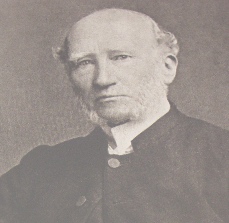Bible Knowledge Graph
Henry Wace
- Entity ID:
- henry-wace-priest
- Long Name:
- Wace, Henry (1836-1924)
- Short Name:
- Henry Wace
- Disambiguation String:
- Dean of Canterbury
- Entity Type:
- person
- Entity Subtype:
- author
-

- churchsociety.org
- Summary:
-
Wace was educated at Marlborough College, Rugby School, King's College London, and Brasenose College, Oxford (BA Literae Humaniores and Mathematics, Honorary Fellow, 1911). He took Holy Orders and served curacies at St Luke's, Berwick Street (1861-63), St. James, Piccadilly (1863-69), and Grosvenor Chapel (1870-72). He moved to Lincoln's Inn, where he served first as Chaplain (1872-80) and later as Preacher (1880-96).
In 1875 he became Professor of Ecclesiastical History at King's College London, of which he served as Principal 1883-97. He was Rector of St. Michael's, Cornhill 1896-1903 and Dean of Canterbury from 1903 until his death in 1924. He is buried in the courtyard of the great cloister of the cathedral.
He wrote, contributed to, and edited, many publications in Christian and Ecclesiastical history. His best known work, of widest application, is the Dictionary of Christian Biography and Literature to the End of the Sixth Century A.D., with an Account of the Principal Sects and Heresies, written in collaboration with William Smith.
He was Select Preacher at Oxford in 1880-81 and 1907 and at Cambridge in 1876, 1891, 1903, and 1910. He was appointed Prebendary of St. Paul's Cathedral in 1881. In 1922 he played an important role in the foundation of the Bible Churchmen's Missionary Society and was its Vice-President from 1923 until his death on January 9, 1924, following a road traffic accident.
- Viaf ID:
- 32384855
- DB Pedia ID:
- Henry_Wace_(priest)
- Biblical Status:
- extraBiblical
- Is An Individual:
- Yes
- Is Published:
- Yes
- Birth Date:
- December 10, 1836
- Death Date:
- January 9, 1924
- Occupation:
- Dean of Canterbury
- Works:
First Principles of the Reformation or the Ninety-five Theses and the Three Primary Works
